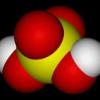Thanks exapted, I've been meaning to read that book for awhile, where that overman, poison makers quote came from. I'm a bit behind in my readings so haven't gotten around to it. I mentioned the left brain dominated education because it seems that if one wants, one can construct just as many hypothesis for the existence of a god, as for without one. It's a game of creativity, connecting reality with story telling and mythos formation. The omega point theory is also extremely cool, I've had a feeling awhile ago that this point existed. I've always constructed my own omega point, as life seems to be best surrounded by progress and mental exercises.
I got the name of the god hypothesis book wrong. Actually it is called God, The Failed Hypothesis. And Breaking The Spell is really interesting. There is a really interesting section on shamanism and hypnotism.
I will say that creativity can go both ways. My view is that if a theistic god can increase the number of possible universes (a higher order of infinity), then some random fluctuation like a Boltzmann brain could do exactly the same thing.
I am also an agnostic, but I have two ideas:
[1] I would bet there is no god, based on the limited information I have, and
[2] Christianity breeds weariness.
But I don't think everyone should be atheist. My point is that people need to deal with the above two ideas in an open manner. I don't think most religions are able to do so.
I'm agnostic myself, but the main reason I defend theism is because some of its teaching represent a culimination of the merger of health and religious thought. Much like the experiments being done on buddhist monks to see what they've been able to develop in terms of control over the brain. I think there can be a very positive relationship between science and religion, rather than allowing science to become the anti-thesis of religion and vice versa. I am reading a book called mega brain about mind machines for instance, and one of the neuroscientists mentioned how much he hated the new age quackery yet whenever he spoke of the prospects of the brain he couldn't help but feeling like he was one of them. The reason i mention this is because stigma affects funding as does whether something works or not. I'd prefer humanity explore as many avenues as possible, rather than creating a funnel.
Btw that observation as far as asian thought is rather interesting. Which areas did you visit that seemed to have a higher acceptance of monism rather than dualism (mind-body)?
I don't really have any criticism of your views. And I think as a thought experiment we should all suspend disbelief sometimes, as a creative process. God is a wonderful thought experiment.
And I lived in Hong Kong for some years and Guangdong for some months. Most of the people I asked were not mind body dualists. A few seemed to associate electrophysiology with the idea of an inner energy. There were also a significant number of Christians, but they were the minority.



















































